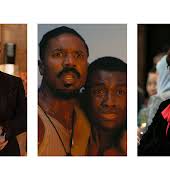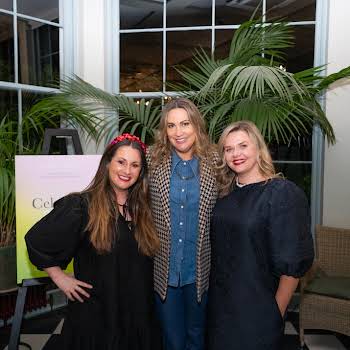Stop trying to fit in: how to find your authentic voice and embrace your true self
By Leonie Corcoran
23rd Apr 2020
23rd Apr 2020
Whether it’s blamed on imposter syndrome or simply not being authentic, all of us, at some point, feel we don’t fit in, and alter what we say or do so people will like us. Leonie Corcoran says it’s time we discovered our true voices — and stopped trying to fit in
Would you describe yourself as authentic? As humans, it’s instinctive for us to show up authentically and to be our true selves.
Despite this instinct, as we progress through our early childhood years, we start covering up our true selves and orientating our persona towards being who we think others want us to be.
Though most of us like the idea of being true to ourselves, in the moment – almost like a reflex – we start to conform to what everybody else is doing.
This tendency to conform, which is often subconscious, is called the Asch phenomenon. In the 1950s, psychologist Solomon Asch found people have an innate tendency to conform to social pressure, giving answers to questions they did not believe in in order to conform with the majority.
During a series of experiments, he found people did not want to appear “peculiar” and they generally believed others are more likely to be “correct”, leading them to say what they perceived the majority agreed with. Put simply, they wanted to fit in.
It was only after my divorce that I found my own voice. It was only then that I realised I had a voice.
“It is natural for humans to want to be accepted,” says Nadine Ferris France, writer, trainer and civil society activist with over 15 years in the global health sector. “We often talk about it in our teenagers – their need to please – but I have seen it to be true across all ages.
“We all wish to be wanted, to be accepted, and we do not want to be judged. Being authentic can be difficult in that situation,” she says.
For Ferris France, being authentic is about finding your voice and being true to it, something that isn’t as easy as it sounds. “It was only after my divorce that I found my own voice. It was only then that I realised I had a voice.
“Until then, I had been so caught up in my own thoughts that my husband was better than me – more highly educated, more informed, more whatever… I had to learn to hear my voice and then to trust it, and then to use it.
“I moved back to Ireland with my two children after living in Thailand for over 10 years. I was divorcing and I was moved to panic when someone asked me about my husband. What would they think of me? What should I say?,” she explains.
Self-stigma
What Ferris France aptly captures is how a belief that we are not good enough, and the corresponding fear of being judged, often stops us from using our own voice. It is, as she says, a self-stigma. “It is our belief about ourselves – that we are not good enough in whatever situation it might be, as a mother, a colleague, a partner – that limits us,” she says.
Challenging this self-stigma is now at the core of Ferris France’s work, which sees her applying a method of self-inquiry, based on the work of Byron Katie, to facilitate people to question limiting thoughts. She recently presented a TEDx on the topic, ‘The Journey from Self-stigma to Self-worth’.
“When we believe we are not good enough, we are transported into a different place in our minds. Whether it is in a meeting, at home, in a conversation – we start to think, ‘they’ll see it’, ‘they’ll find me out’, ‘get me out of here’… All of these crippling thoughts occupy our minds.
“They stop us from being present in a moment, from actively listening and from being authentic ourselves and to what we really believe because we are consumed by fear and shame, thinking that we are not good enough.”
Imposter syndrome
In workplace settings, the feeling is often labelled as imposter syndrome, something that is recognised as impacting the vast majority of women across all ages. According to neuroscientist and leadership coach Tara Swart, “It is an almost universal feeling for all, even the seemingly most confident of leaders, regardless of age, gender or industry.”
The term was first coined in 1978 by Pauline Clance and Suzanne Imes as “impostor phenomenon” in an article ‘The Impostor Phenomenon in High Achieving Women’. It has now morphed into ‘impostor syndrome’, leading the phenomenon to sound more like a recognised psychological condition rather than simply a negative thought pattern that stops us from stepping up and achieving more.
The ability to question these negative thought patterns comes back to challenging your belief that you are not good enough, along with having the confidence to use your voice.
When it comes to confidence, learning from others can be key. Have you ever heard someone speak passionately and authentically about a subject? Have you been energised and inspired by them? Finding these voices – in your group of friends or in history – is one way leadership and life coaches encourage people to do the same.
Very few of us feel comfortable being our authentic self because we don’t recognise the value of our authenticity.
To inspire my “big decisions”, I think of Amelia Earhart, who paid to go on her first plane ride in December 1920 and then decided to be a pilot. To her, it didn’t matter to her that there were only a few women in aviation. She developed her skills and her determination led her to be the first woman to fly transatlantic solo.
Many who write about her achievements tout her confidence as one of her greatest strengths that led her to set many records. And while she was doing it, she used her voice to advocate for other women in aviation – she gave speeches (13 in 12 days at one stage), served on committees and founded the Ninety-Nines, an organisation for female pilots, and her own clothing line.
She did not, it seems, shy away from being judged and nor did she act as if she felt she was not good enough… even if she felt it.
Very few of us feel comfortable being our authentic self because we don’t recognise the value of our authenticity. We don’t see ourselves or our voices as remarkable. We forget that our authenticity is the one thing – more than anything – that makes us, like Earhart, unique.
In her many speeches since leaving The White House, from leadership summits to school groups, Michelle Obama has highlighted the importance of diverse experiences and voices.
In one speech, she noted: “My husband, he has wonderful insight, opinions, wisdom – that’s one of the reasons I married him – but his perspective is different from mine because we’ve grown up in different bodies, with a different set of experiences.”
Ask yourself, ‘Why am I not confident enough to be myself?’
It is speaking from these places of different experiences that give unique and diverse viewpoints. And it is what makes our voices unique and authentic.
So the next time you find yourself ‘blending in’ with the crowd in a particular situation and you know deep down that you are not being authentic, ask yourself, ‘Why am I not confident enough to be myself?’.
Take a moment to think about this and maybe use that opportunity to add your voice to the conversation. As Ferris France notes, “It is just one voice in the tapestry of voices”.
If you feel you’re faltering…
Feel the fear and…
The next time you stall, instead of saying something you were ready to say, notice the fear. Then name it and say what you wanted to say anyway. For example, you might say: “It makes me very nervous to say this, but I believe…” For more on the power in being honest about vulnerability, listen to Sinéad Burke’s podcast As Me with Sinéad.
Exercise your mind
Your mindset is a muscle, and it needs to be exercised to stay in shape. Read, study or listen to something inspirational every single day. Breathe deeply and often. Meditate. Listen to and trust your intuition. Surround yourself with people who inspire you or read about inspiring women in history.
Stretch yourself
We know it works for the body, but stretching yourself experientially is good for your mind too. When you do things differently and feel the discomfort of being outside your comfort zone, your brain creates new pathways and connections. This is the start of changing our underlying thoughts and habits and with each stretch, this process becomes easier. Go on a zipline, take on a work challenge, take time for yourself – just do it!
Photo: Getty
Read more: I tried yoga for the first time ever during lockdown, and I have some thoughts
Read more: Instead of trying to change your life during lockdown, make these five small changes
Read more: Trouble sleeping? Try listening to these three soundscapes at bedtime























